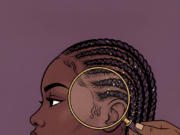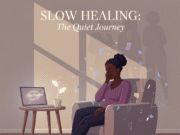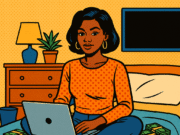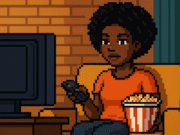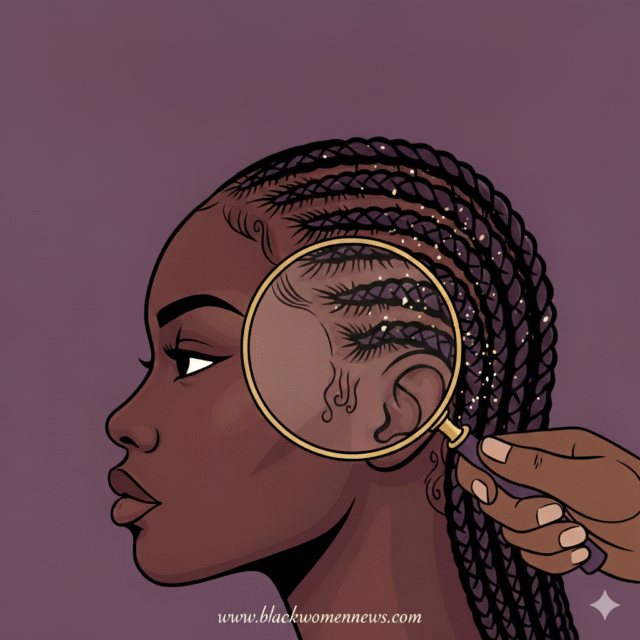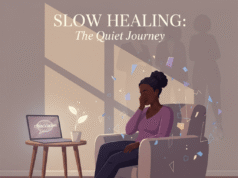For many Black women, seborrheic dermatitis (SD) is more than just a skin condition — it is a daily battle that impacts their physical comfort, emotional well-being, and cultural identity. Often misunderstood or misdiagnosed, this chronic inflammatory condition affects the scalp and face with itching, flaking, redness, and sometimes hair loss. The way it appears on darker skin tones can be different, often leading to additional challenges in treatment and self-care. Through real voices from Black women sharing their experiences on Reddit, this article sheds light on the complexity of living with seborrheic dermatitis in a culturally nuanced way.
The Invisible Struggle: Seborrheic Dermatitis on Black Skin
Seborrheic dermatitis can manifest differently on Black skin. Instead of the classic bright redness seen on lighter skin tones, Black women frequently experience scaling, patchiness, and discoloration that may appear as hypopigmentation or hyperpigmentation. These symptoms are not only physically uncomfortable but can be visually distressing. Many Black women report misdiagnosis or delayed diagnosis because healthcare providers may not be fully aware of how SD presents on darker skin.
One Reddit user lamented, “I have seborrheic dermatitis so I can’t use products with shea butter, coconut oil and olive oil. Most brands created by us use those oils. I hate it here.” [r/blackladies] This points to the frustrating reality of product limitations and the difficulty of finding culturally relevant haircare and skincare that don’t exacerbate symptoms.
The Emotional Toll: More Than Just Flakes
Living with seborrheic dermatitis extends beyond managing flares; it carries emotional weight. Visible flakes, constant itchiness, and discoloration can cause shame, anxiety, and diminished self-esteem. Black women often feel hyper-aware of their appearance, navigating social spaces with worry about flaky shoulders or uneven skin.
As one woman shared, “Seborrheic dermatitis caused me to shrink, to avoid drawing too much attention to myself… I was constantly aware that one could develop, and this awareness affected everything.” This emotional toll is frequently overlooked but deeply felt.
Haircare and Healing: Cultural Identity Meets Medical Reality
Treating seborrheic dermatitis while maintaining traditional Black haircare routines poses unique challenges. Many common oils and butters (coconut, shea, castor) beloved in Black haircare can worsen seb derm symptoms. This forces women to rethink their haircare, sometimes abandoning products tied to cultural expression.
A Reddit user explained how they managed treatment: “I use Nizoral, Neutrogena T-sal or 1% ciclopirox shampoo (rotating), apply to scalp for 5-10 minutes, then deep condition. I stopped using oils like shea butter and coconut oil because they made it worse.” [r/blackladies] This delicate balance between healing and preserving hair health requires patience and experimentation—and can mean redefining what self-care looks like.
Finding Relief: Treatments Rooted in Cultural Sensitivity
Effective management of seborrheic dermatitis often hinges on finding treatments compatible with Black hair and skin. Antifungal shampoos like ketoconazole or ciclopirox are common recommendations, but many find they dry out hair or skin if used too frequently. Supporting products such as aloe vera, squalane, and light leave-in conditioners without heavy oils can help restore moisture and soothe irritation.
Another community member advised, “I’ve found relief after cutting out heavy oils and using MCT oil sparingly with medicated shampoos. Also, don’t scratch—it only makes things worse.” [r/SebDerm] In addition, seeking dermatologists who understand Black skin nuances can be a game changer in treatment success.
Breaking the Silence: Empowerment Through Shared Stories
Despite how common seborrheic dermatitis is, stigma and silence often surround it. Many Black women feel isolated, hesitant to discuss a condition that impacts their appearance and confidence. By sharing stories on platforms like Reddit, they create spaces of understanding, support, and empowerment.
“I went from living with embarrassment and feeling unattractive to finding power in sharing my story,” said one Redditor, illustrating the healing potential of community and openness.



